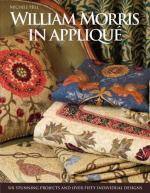|
This section contains 6,245 words (approx. 21 pages at 300 words per page) |

|
SOURCE: Barker, Thomas T. “The Shadow on the Tapestry: Irony in William Morris' The Earthly Paradise.” The Journal of Pre-Raphaelite Studies 2, no. 1 (November 1981): 111-26.
In the following essay, Barker compares The Earthly Paradise to Alfred Tennyson's “The Lotos-Eaters” and Edmund Spenser's The Faerie Queene to show that Morris's poem is more ironic than escapist in nature.
A review of the critics' reception of The Earthly Paradise shows that they have identified it with the trend toward escapist art which flourished in the late nineteenth century. Oscar Maurer's study of the work's original reviewers confirms this. Critics did not question Morris' escapism because it seemed easily proven by a literal reading of such passages in the “Apology” as “Dreamer of dreams, born out of my time, / Why should I strive to set the crooked straight?”1 Commentators after the turn of the century2 agreed with the reviewers of Morris' time...
|
This section contains 6,245 words (approx. 21 pages at 300 words per page) |

|


